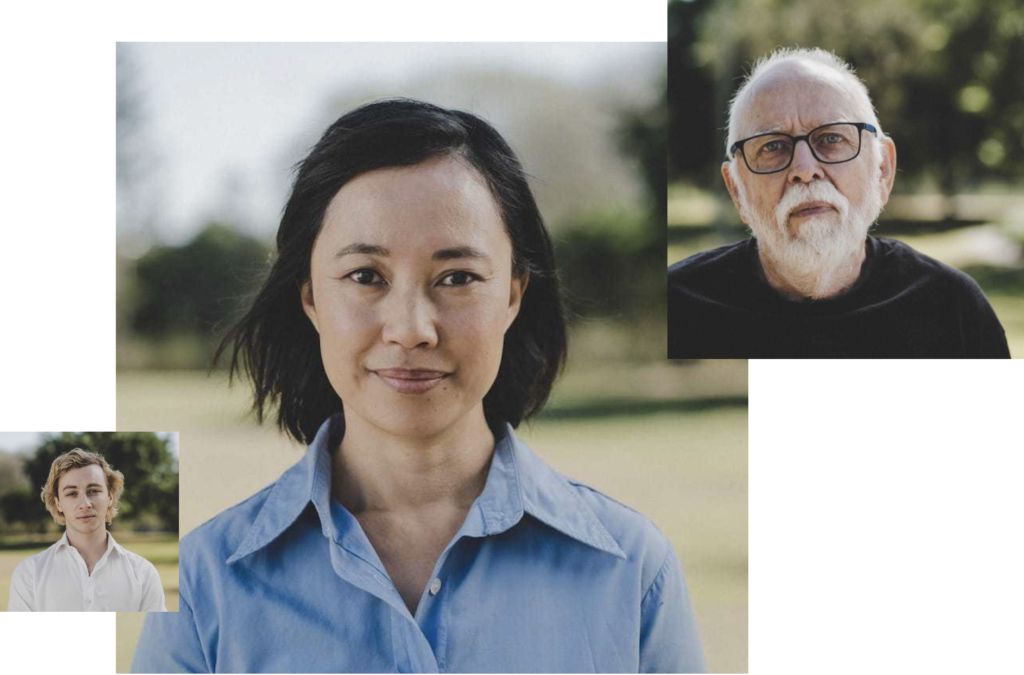Suicide can have a devastating and unexpected impact on the family, friends and connections of the person who died.
A person’s beliefs and experiences can influence how they feel, what they say and how they say it after losing someone they care about to suicide. Some people may feel shame and not want to connect with friends or reach out for support. Others may be focused on finalising practical matters to help them through this time. Every person’s response will be different.
However, the support of family and friends can make a major difference in how they cope with their bereavement. If you are wanting to support someone who has lost someone they care about to suicide, there is help available including information to read, people to speak to and professional services that can assist. Read on to learn more.

Starting the conversation with someone who has been bereaved by suicide can be very difficult. We often feel we don’t want to say something that will make things worse. Bereaved people tell us however that having someone show them care and concern is far more important than saying the “right” thing. This online presentation provides basic information about what you can do and say to support someone who has been bereaved by suicide. View Conversations Matter to those bereaved by suicide.
Children and adolescents are not immune to the impacts of suicide.
For guidance and support on talking about a suicide death with children, information on the importance of family rituals and how to liaise with a child’s school after suicide, click here.
The experience of losing a family member or friend to suicide can be particularly challenging during adolescence. Understanding the grief process and finding someone to speak to during their grief can be important steps in their recovery. For guidance on how to speak to young people about suicide, please click here.
Supporting someone else in their grief can be overwhelming and exhausting. Taking care of yourself is just as important as taking care of the person affected by suicide. Click here for information on how to look after yourself during this time.
A helpline can help to guide you in how to support someone bereaved by suicide and how to look after yourself during this time. A list of helplines you can contact is available here.
You can also encourage the person you are supporting to visit a GP. A GP can make a diagnosis, discuss suitable treatment options and refer them to a mental health professional if needed. You can search for a closely located General Practice by clicking here.
A range of mental health services are available in the Brisbane North region.
Standby Support after Suicide offers free face to face and 24/7 crisis telephone support, with follow up contact continued for up to two years for anyone impacted by suicide. Call 0438 150 180 in Brisbane North (24 hours a day, seven days a week).
If you need help supporting someone bereaved by suicide or are worried the person you are supporting is in need of professional help, the My Mental Health Service Navigation team can link you with mental health, suicide prevention and alcohol and other drug treatment services in our region.
Call 1800 752 235.
Please note, this is not a crisis service and operates 8.30 am – 4.30 pm, Monday to Friday.
If you or someone you are with is in immediate, life-threatening danger:
Call Triple Zero (000) or go immediately to your local hospital emergency department.
You can access immediate support by contacting

Brisbane North PHN wishes to acknowledge the experience and expertise of the Brisbane North Suicide Prevention Network, delegates of the Peer Participation in Mental Health Services (PPIMS) network and health professionals in developing the Reasons to Stay campaign.
Brisbane North PHN acknowledges the traditional custodians past and present on whose land we walk, we work and we live.
This activity is supported by funding from the Australian Government under the PHN Program.
While the Australian Government Department of Health has contributed to the funding of this website, the information on this website does not necessarily reflect the views of the Australian Government and is not advice that is provided, or information that is endorsed, by the Australian Government. The Australian Government is not responsible in negligence or otherwise for any injury, loss or damage however arising from the use of or reliance on the information provided on this website.